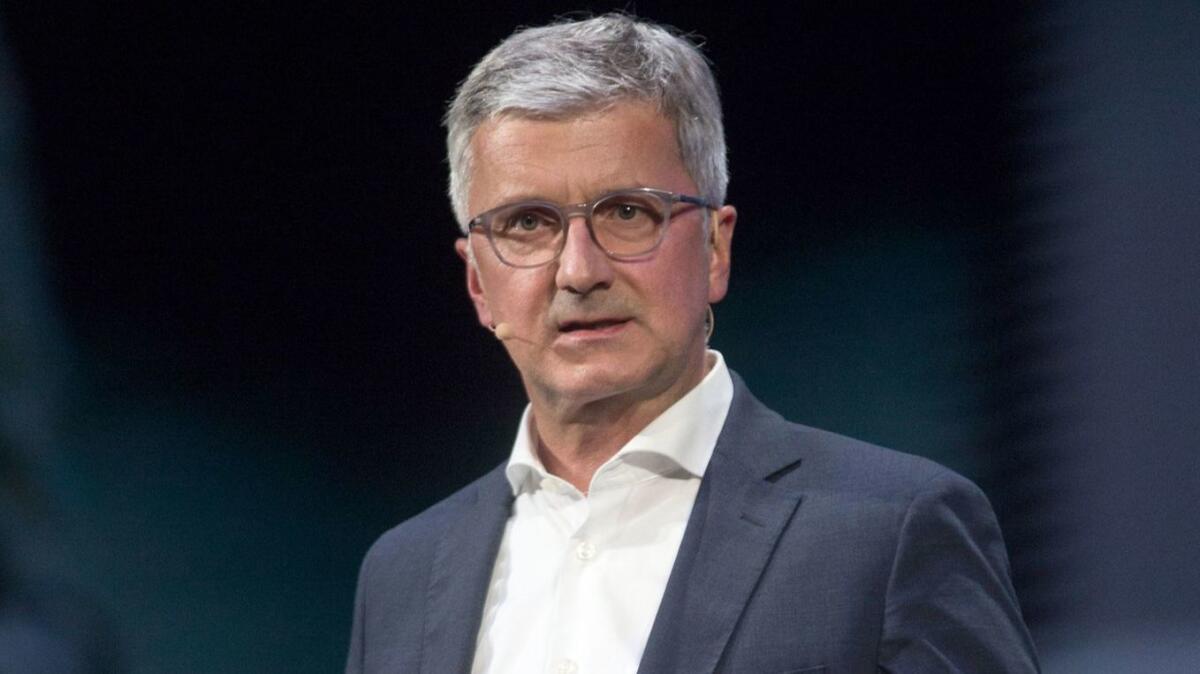Audi ex-CEO is charged with fraud in VW diesel cheating scandal

- Share via
Prosecutors in Germany charged former Audi Chief Executive Rupert Stadler with fraud and other offenses, accusing the disgraced manager of continuing to sell cars with manipulated engines even after the scandal burst into the open in late 2015.
Stadler, who was charged alongside three others, was detained for months last year after concerns he may have tampered with a witness. Munich prosecutors are accusing the executive of knowing about the deliberate diesel-engine rigging by September 2015, according to a statement Wednesday.
Since the diesel scandal was uncovered, Volkswagen has been repeatedly dragged back into its biggest corporate crisis. Allegations have been swirling ever since about who at the top knew what, and when, about the manipulation of as many as 11 million diesel cars worldwide.
Stadler’s attorney Thilo Pfordte did not immediately reply to an email seeking comment, and Audi declined to comment beyond saying that all individuals should be presumed innocent until proved otherwise. Once seen as a possible contender for VW’s top job, Stadler was arrested in June 2018 and spent months in jail. Audi, which had previously extended his contract, suspended him shortly after he was detained.
VW’s biggest profit center, Audi quickly became implicated in the cheating affair, setting back Volkswagen’s attempt to contain fallout. The focus turned to Stadler as prosecutors sought to untangle the origins of the scandal. In the years that followed, repeated recalls of Audi vehicles over their emission performance — including Porsche cars with engines developed by VW — continued to taint the brand.
In April, Braunschweig prosecutors charged former Volkswagen head Martin Winterkorn with serious fraud for his role in the diesel-rigging scandal that has so far cost the carmaker about $33 billion.
More investigations are pending, including one into market manipulation targeting Volkswagen CEO Herbert Diess, Chairman Hans Dieter Poetsch and Winterkorn over allegations that they informed markets too late about the diesel case and its impact. Volkswagen has said it couldn’t have anticipated the dramatic fallout from the revelations.
More to Read
Inside the business of entertainment
The Wide Shot brings you news, analysis and insights on everything from streaming wars to production — and what it all means for the future.
You may occasionally receive promotional content from the Los Angeles Times.










